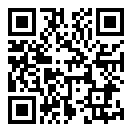
MUS Talks – The School of Organ Singing (Bahia, 1750-60) and the crossroads of eighteenth-century music theory

MUS Talks 2024-25
The School of Organ Singing (Bahia, 1750-60) and the crossroads of eighteenth-century music theory.
Prof. Dr. Mariana Portas, researcher at the Group of Historical and Cultural Studies in Music of the Institute of Ethnomusicology, Music and Dance (NOVA-FCSH); author of the thesis Models and singularities in Luso-Brazilian musical theory of the Ancien Régime. The “Organ Singing School” of Caetano de Melo de Jesus (Salvador da Bahia, 1759-60). She is also the Coordinator of the Calouste Gulbenkian Foundation’s Publishing Plan. Among other roles she has held throughout her career, she was International Relations advisor to the Gulbenkian Portuguese Language and Culture Plan, and coordinator of the Gulbenkian Choir.
______________________________________________________________________________
The School of Organ Singing (Bahia, 1750-60) and the crossroads of eighteenth-century music theory.
In 1759, Salvador da Bahia, capital of the Viceroyalty of Brazil, witnessed a political and social drama in several acts: the expulsion of the Jesuits and the closure of their colleges and seminaries, which contained the best libraries in Brazil; the establishment of the Pombaline policies of reform and secularization of society; the creation of new cultural centers for the Bahian elite, such as the Academia Brasílica dos Renascidos, which brought together dozens of literate people, plantation owners and ecclesiastics; the decline of the “sugar cycle” and the peak of the “gold cycle”, which in 1763 led to the transfer of the Viceroy’s capital to Rio de Janeiro and the shift of the economic axis to the south. It was in the same year, 1759, that Fr. Caetano de Melo de Jesus, born in Bahia, completed the largest treatise on music written in Portuguese – the Escola de Canto de Órgão, with 2 volumes and 1,200 handwritten pages – and sought a patron to send the volumes to Lisbon for printing.
What interest does research into music theory from the 16th to 18th centuries have for today’s musician? First of all, it allows us to recover long-forgotten heritage: music theory is sometimes a first-rate historical source and a window on the musical practices of the past; secondly, knowledge of the music theory of other eras allows us to better understand our current musical system; finally, music theory has often functioned as a platform for interaction between music and other spheres of culture: the visual arts, dance, literature and thought.
Registration here:
https://www.eventbrite.pt/e/bilhetes-mus-talks-a-escola-de-canto-de-orgao-1255468262369?aff=oddtdtcreator
Time
16:00
Date
2025-02-28
Location
Online in Teams

